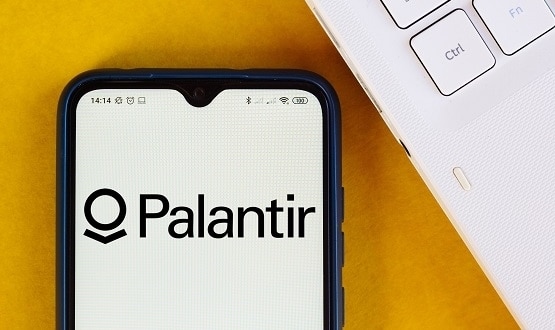Love my tender, love me do
- 22 March 2012

The National Programme for IT was set in motion ten years ago this month with a speech by Sir John Pattison, the Department of Health’s then-director of R&D, at Healthcare Computing.
He promised a new system of IT procurement, based on “ruthless standardisation” that would be achieved by giving contracts to just a handful of big suppliers.
The problems with this approach have been made painfully apparent over the past decade. Now, with just a handful of exceptions, trusts are back in the driving seat and being encouraged to develop their own strategies.
Some are looking to procure new infrastructures, patient administration systems and electronic patient records as a result. Yet, questions are being asked about whether all trusts have the experience, technical expertise and commercial know-how to get the best deals.
The biggest project in the trust, ever
Channel 3 director of strategy Brian Gorman says procuring an electronic patient record system is likely to be the biggest project a trust ever undertakes.
He believes that smaller trusts will struggle to do this on their own, and says his staff have observed a loss of expertise within the NHS when it comes to tasks such as putting together an IT strategy and then taking it forward into tenders and deployments.
“It was all defined by NHS Connecting for Health, so there was no need for them to do their own,” he says. “It’s quite a challenging transition from the national programme to just having standards that people can operate against.
“The standards don’t address the problem for trusts that now have to purchase all their own EPR systems – in addition to making savings. But you are seeing the clever, intelligent trusts are finding ways of doing things in a smarter way, going out and buying EPRs that meet their own specific requirements.”
I’m a consultant and I’m here to help
Some trusts are looking for help, both from consultants and from companies that can take on some of the day to day lifting.
Sussex Partnership Trust made Channel 3 a strategic partner when it sent out to tender for a comprehensive IT service, for which it recently named 2e2 preferred bidder.
Director of IT performance Lee Francis also feels that most NHS organisations these days do not have the expertise for dealing with significant procurements and commercial suppliers.
“Particularly in the NHS, where there are shared informatics services, you do lose some of that IT capability,” he says. “You will have pockets of people who do have more exposure then others – it does depend on the individual trust’s approach – but certainly when you centralise something like NPfIT you do lose some of that exposure.”
He says the last ten years of centralised IT procurements have left his trust with a very dedicated, but small contingent of IT specialists, who consequently have little commercial experience and expertise.
“Our strategic partner brought to the table best of breed people who live and breathe this stuff, do it day in day out across the country,” he says.
“It’s important to line them up with appropriate members within your own team to make sure the trust’s ethos, culture and nuances you get with absolutely every trust feed-back to those guys so they can understand the fabric of the organisation.”
Fewer sleepless nights
Francis says doing a large procurement is very challenging. He says he had plenty of sleepless nights, and was glad to have support on board when his team found itself dealing with issues “we wouldn’t have even thought of.”
For instance, the trust’s existing supplier was bidding for the new contract, so it had to put in strict procedures with regards to dealing with them. “It’s that sort of rigour that you need to bring in to ensure the procurement process is absolutely done to the letter of the law.”
Francis adds that a procurement usually means a seven-year relationship with a supplier and it is important to start off on the right foot. To do this, he says it is necessary for a trust to have its requirements clearly defined, so everyone is clear about what is being delivered.
‘Front ending’ resources to make sure a deal is procured properly is “painful” but essential, he says; adding that trusts also need to look at the bigger picture in terms of what they will be stuck with if things go wrong.
On the other hand, he says his trust has a plan in place for skills transference to allow it to move forward once the partnership comes to an end.
“Trust staff benefit immensely from this. Some of my guys are so enthusiastic they got to interface with other subject matter experts. It can be a geek-fest of the techie guys. It’s been a very positive experience.”
Getting vendors interested
Some suppliers have suggested that trusts that are only just thinking of going out to tender will struggle to attract interest; particularly if their plans are badly thought through or not well resourced.
However, Gorman says if they are done well, trusts can still take their pick of vendors. He has seen some relatively small procurements recently that have attracted 50-60 PQQ responses.
However, bidding for an EPR is resource intensive and suppliers will not respond if they feel they have no chance of winning.
“Most suppliers are interested in most tenders irrespective of size, but what they really demand above everything else is a fair competition,” he says.
“Where they are picking and choosing is where there’s a perception that it’s a pre-concluded decision. But if it’s really fair then they will get the best range of suppliers.”
He claims that some organisations simply Google an OJEU notice for an EPR system and send it out; an approach that he describes as a “fundamentally dangerous”.
Procurement decisions can be challenged for just £100 and trusts can easily see themselves end up in expensive litigation as a result of not doing the process properly.
“Suppliers are now challenging. It’s a very competitive market and it’s so cheap to challenge that if you haven’t done the procurement right, it really is fraught with risk.”
Gorman also says it is essential that trust not only understand exactly what they need, but the level of change needed to get there. “If you’re not very, very clear about this, what you are actually buying is a whole lot of risk,” he argues.
It’s not the 1970s anymore
After ten years of IT stagnation, trusts may also need to lift their sights to some of the newer technologies that are around.
Gorman suggests they should be thinking about the opportunities provided by technologies such as telehealth, social media, and portals that extend out into their local health communities, rather than just re-procuring what they already have, or looking for systems that NPfIT meant they missed out on.
“The most frustrating thing is people looking to replace what they have got at the moment. Looking to replace a 1970s PAS with a 1970s PAS is not the right thing to do.”
In addition to looking for commercial expertise, he says people within the NHS should also help each other more. “The collective intelligence the NHS has itself is never leveraged.
“You find people making the same mistakes made by trusts miles apart and that’s really about strategic leadership. Those that don’t encourage strategic leadership are those that will really struggle to retain their autonomy.”




